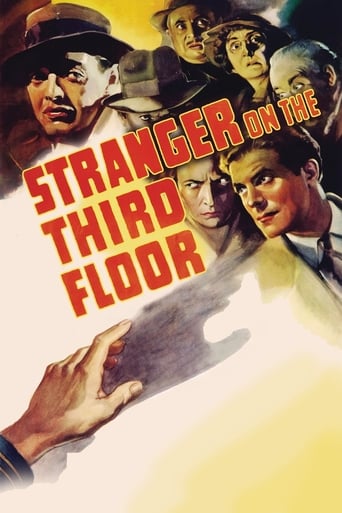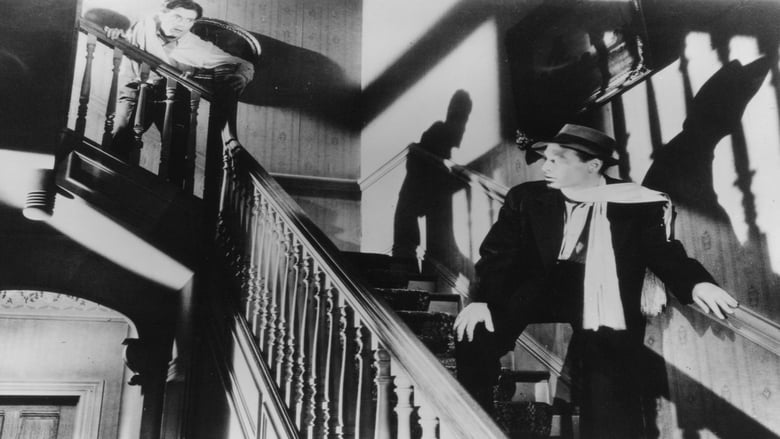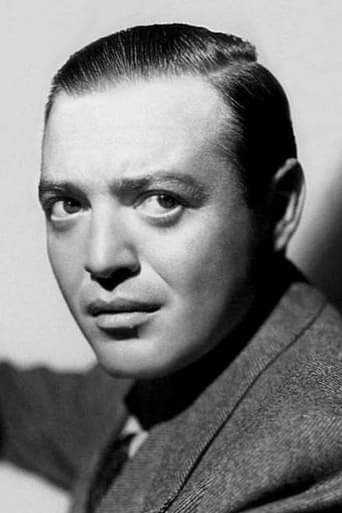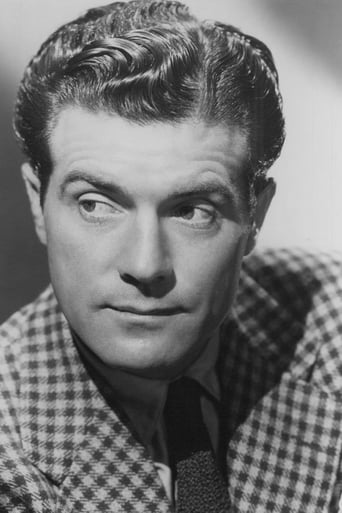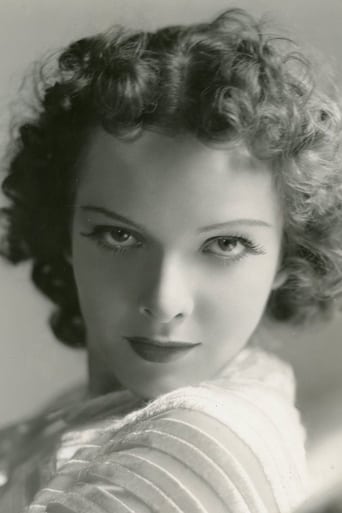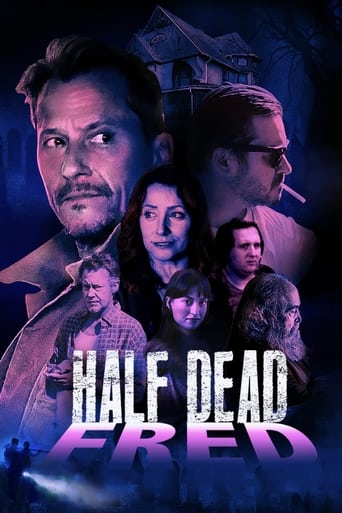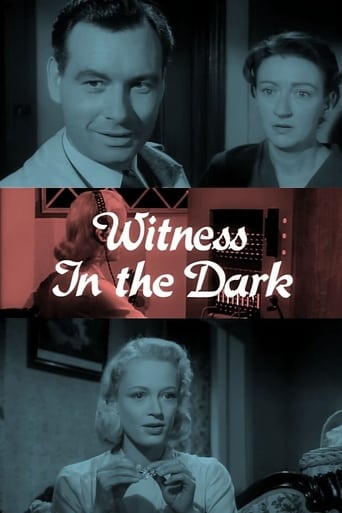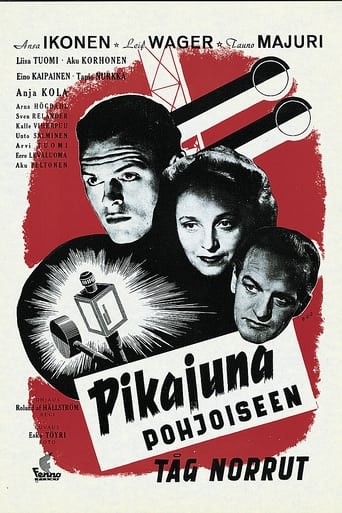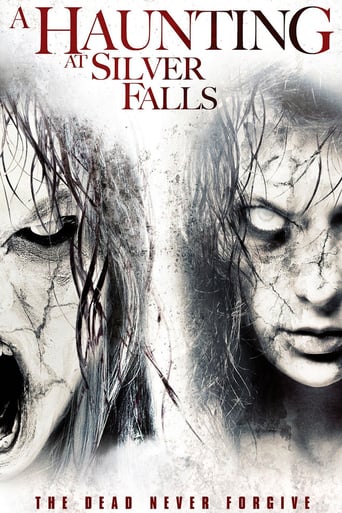Stranger on the Third Floor (1940)
Newspaper reporter Michael Ward plunges into a nightmare of guilt, fearing that his "evidence" has sentenced the wrong man to death.
Watch Trailer
Cast


Similar titles
Reviews
Don't listen to the negative reviews
Absolutely Fantastic
The film creates a perfect balance between action and depth of basic needs, in the midst of an infertile atmosphere.
Through painfully honest and emotional moments, the movie becomes irresistibly relatable
1940's "Stranger on the Third Floor" finds top billed Peter Lorre returning to his psychotic roots after eight Moto adventures and before his tenure with Bogart and Sidney Greenstreet at Warners, doing a number of low budget B's that paid the bills for various studios- Columbia, Republic, and in this case RKO. Underrated and little-seen for many years, this picture has been receiving its due in recent years, most often popping up on late night television. John McGuire's reporter is an eyewitness to a murder, the accused (Elisha Cook Jr.) an ex-con who was heard threatening the victim's life. The noir elements come into sharper focus when our hero is tormented by monologues conveying his thoughts to the audience, a common radio device rarely used in movies at the time. The sight of a mysterious stranger prowling the neighborhood, identified by his long white scarf, coincides with a second murder identical to the first; in an ironic twist, it's the nosy neighbor who has been threatened by the reporter himself. Lorre's brief but mesmerizing performance proves 'there are no small parts, only small actors,' for despite the fact we fear his homicidal tendencies, he's still able to garner a measure of sympathy (or perhaps pity), much like he did nine years before in "M." John McGuire is best remembered for playing twin brothers opposite Bela Lugosi in 1941's "Invisible Ghost," while lovely Margaret Tallichet gave up a promising career for marriage with famed director William Wyler ("Jezebel," "Roman Holiday," "Ben-Hur"). Considering the results, it's really a shame that director Boris Ingster only made two more features, proof that this gem was indeed overlooked in its day.
If you want an in your face Film-Noir expressionistic look with a style yet realized, this embryonic exhilarating movie is it. For students it can unleash an against the grain production that is not prototypical and has some other great flourishes that make this a grand experience.This tight little thriller is cynical ("there are too many people in the world") and strange. It takes on suppressed courting rituals (the rather risqué romantic interlude in the apartment) notice the gleam in his eye as he peels off her stockings in their "warm and cuddly" retreat from the rain. There is so much to look at in the dream sequences and flashbacks with the audacious use of distortion and shadows and bizarre character posturing, that this short film is packed with enticement and extremes that are as loopy and lamenting as anything in film.There are the yet to be Film-Noir standards and icons such as guilt, paranoia, geeks, false accusations, hallucinations, slimy dwellings with close quarters and staircases, diners, rain-soaked streets, trench-coats, mental illness and brutal violent acts. It's all here formulated with a minuscule budget and is a cloistered mini-masterpiece of movie potentials and artistic exuberance.
The reporter Michael 'Mike' Ward (John McGuire) is promoted in the newspaper when he becomes the key witness of the murder trial of Joe Briggs (Elisha Cook Jr.), a young man that he had seen threatening the victim Nick in his coffee shop and then leaving the place with Nick with sliced neck. Joe swears innocence and despite the circumstantial evidence, he is convicted and sentenced to the electric chair. Mike's fiancée Jane (Margaret Tallichet) feels uncomfortable with the sentence and believes that Joe might be innocent. Mike loses his confidence and feels remorse for his testimony accusing Joe. One night, Mike brings Jane to his room and his nosy neighbor Albert Meng (Charles Halton) brings the landlord that expels Jane from the boarding house. Mike threatens Meng and later he sees a stranger with bulging eyes (Peter Lorre) on his floor that runs away from him. He has a weird nightmare and when he wakes up, he finds that Meng is murdered with sliced neck similar to Nick. Mike calls the police and is arrested as prime suspect of both murders. Jane seeks out the stranger on the streets to save her fiancé. "Stranger on the Third Floor" is considered the first film-noir of the cinema history. The story is engaging, supported by magnificent cinematography, and the sequence of Mike's nightmare is fantastic. Peter Lorre is creepy and the conclusion is naive on the present days. My vote is seven.Title (Brazil): "O Homem dos Olhos Esbugalhados" ("The Man with Bulging Eyes")
Film noir has deep roots in Weimar Germany, and I don't mean the tricks with light and shadow, those being tricks. The engine was always control over the narrative and disoriented mind. It goes back to Lang, Sternberg, Pabst, selective films by primarily those three. I have written extensively on all three. But as far as the Hollywood model is concerned, the traditional iconography we identify as noir, it probably starts here. The Maltese Falcon and a score of other films would come out the next year.The score is that a murder has taken place, a young man arrested and awaiting trial, and our newspaper reporter is the key witness. He is quite adamant in the court that he's reporting truth, truth as he saw it. But of course he didn't see the actual murder take place. Nevertheless, the young man gets the chair.Now dramatically the entire thing is shoddy and wholly scripted from the outside, every character openly announcing love or doubt. But we lucked out that this was a b-movie filmed on the cheap, and so had to be quick and inventive, in place of a lot of words having to rely on a few strokes of the camera in just over 60 minutes.Our reporter is eaten inside by doubt that he helped convict the wrong man, and ordinarily we'd be taken on a plot where the tangled web is reasoned back into its rightful order. Instead we have amazing cinema, the widely discussed hallucination and centered in the house. Now most reviewers have rested their comments on the expressive sets and feverish air of the nightmare, as the man hallucinates himself in the situation of the convicted who is innocent but no one will believe him. It is the one scene that immediately calls for attention. But the nightmare has started well before he's fast asleep and is a little more intricately woven. The internal monologue of doubt and self-recrimination starts down in the street and goes up the lodging place, with the man pacing up and down the halls, no longer the confident person we first met, going through possible scenarios and his level involvement, and the stream of consciousness reflects shattered reality, coalescing from one unfinished thought into the one after next. It's the one thing perfectly written in this, whether intentionally or not.So the limits of a safe, recognizable world torn away, the eye no longer allowed to rest within a sensible geography, every little thing suddenly becomes a clue that triggers a story to fit in it. He sees a mysterious stranger on the third floor, the door opposite his.Then of course the nightmare on the third floor, the court, pointed fingers accusing, the huge cavernous cell with shadows of bars slanting on him.The third layer and more frightening is that he wakes up to discover that reality was just as dreamed. The uncanny effect produced by doubling the other two layers into now a straight-forward 'wrong man' plot, is it allows us to recast anxiety as spillover from both nightmare and monologue. This is very clever tinkering and especially at the b- level, every last bit of the film may be the mind in disarray and muttering to itself.Of course the story was all true as we suspected, both men innocent, and a 'crazy person' responsible. Everything is set straight. The twist is that it's the woman who acts as the private eye, doing the grassroots detective work on the streets. The court is spared a second trial, fateful causality taking care of loose ends. The denouement of a happy life ahead of everyone is like straight from a dream, which is fitting since the premise was that reality was just as dreamed.Subsequent filmmakers would supply a more ambiguously layered eye, but this was great for the time, an impressive start.

